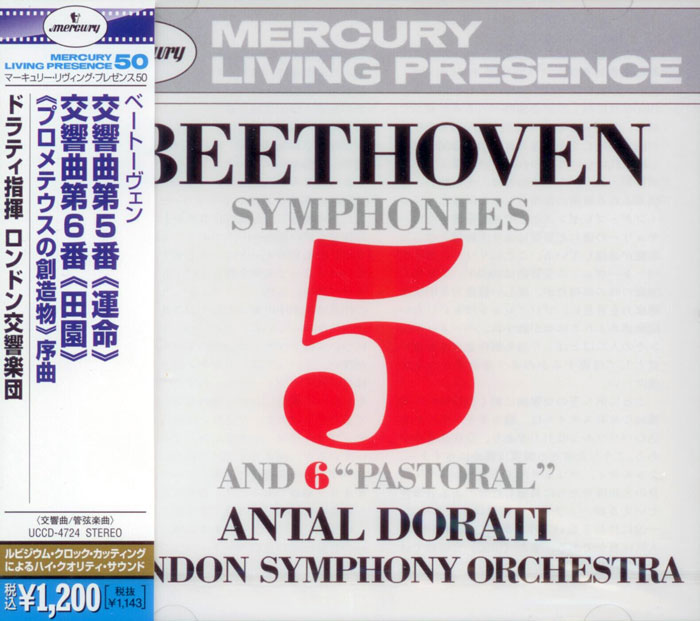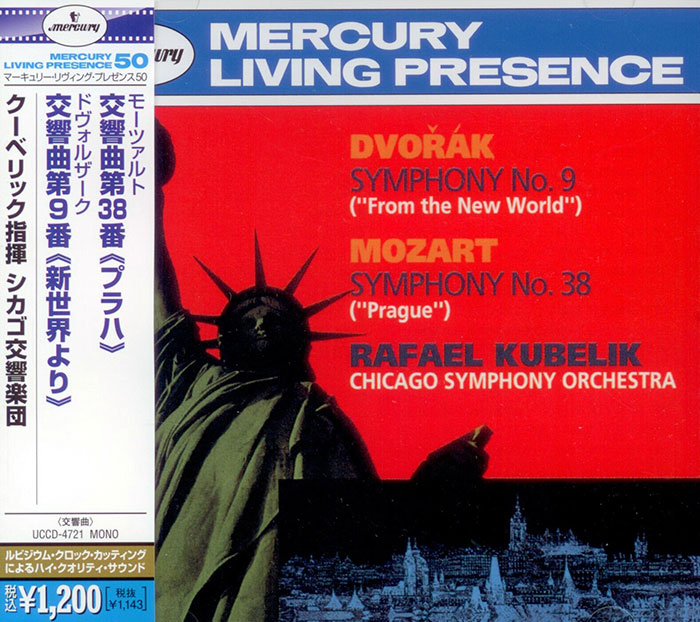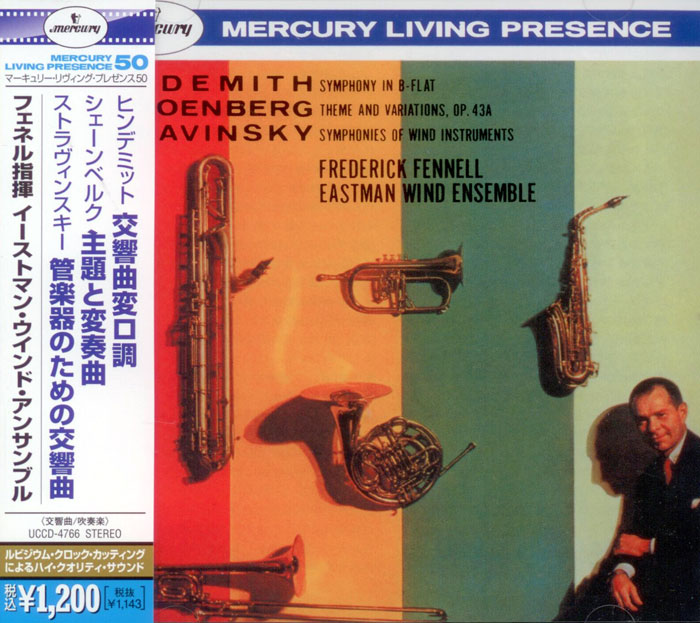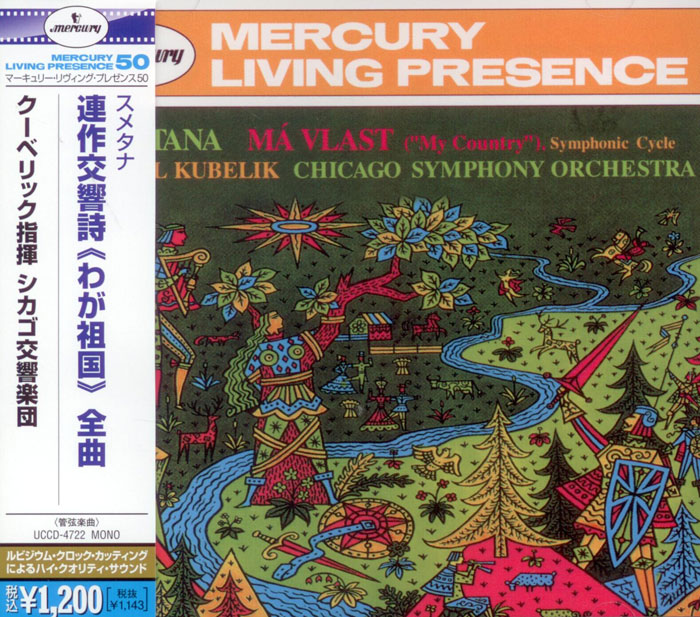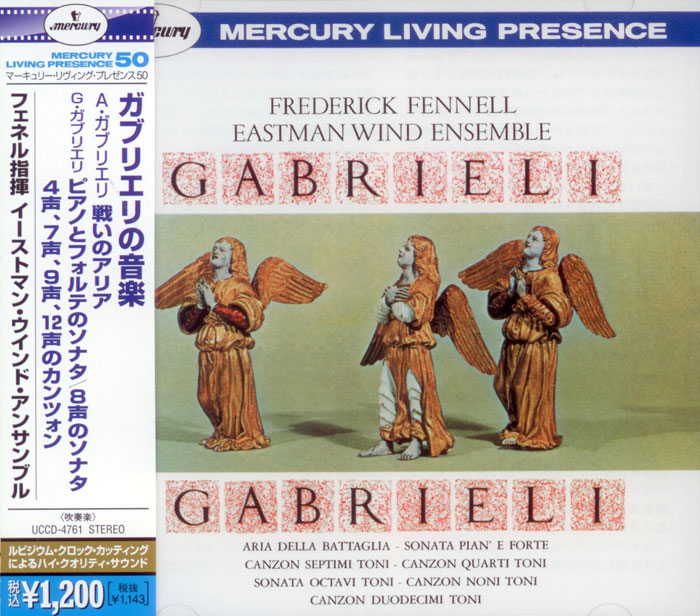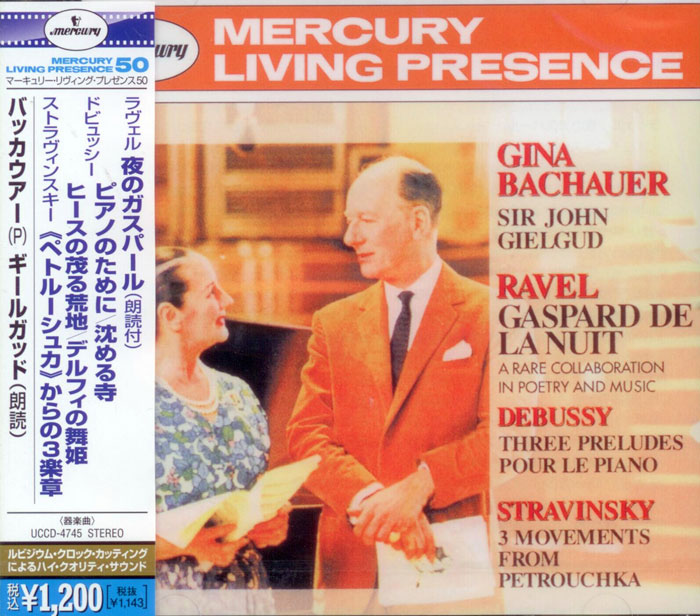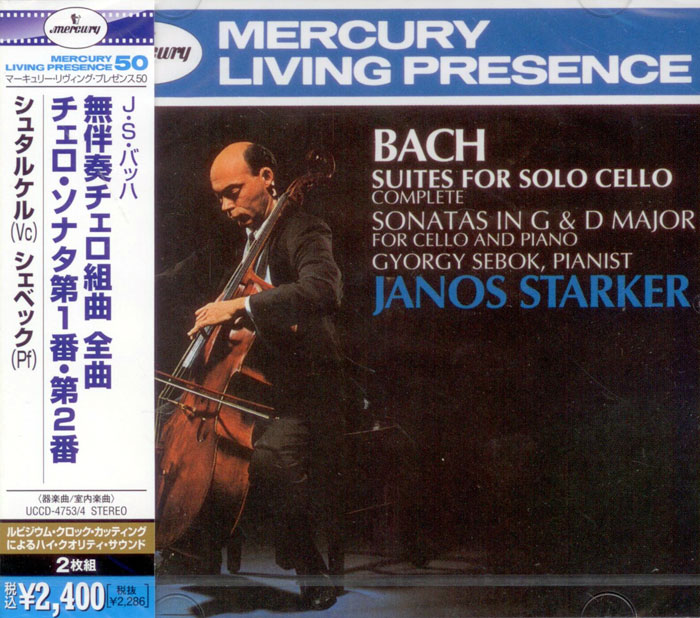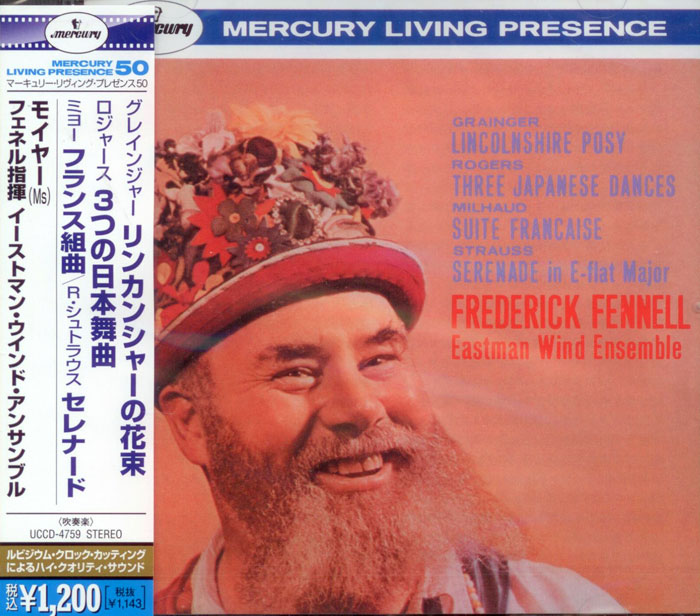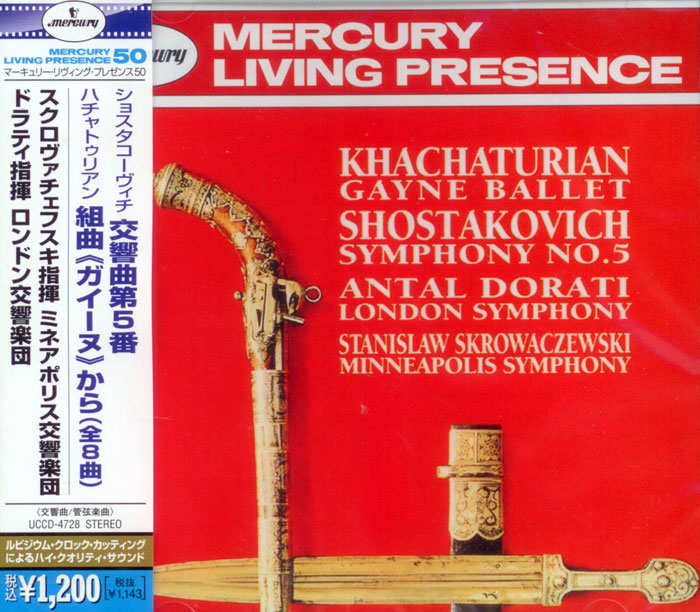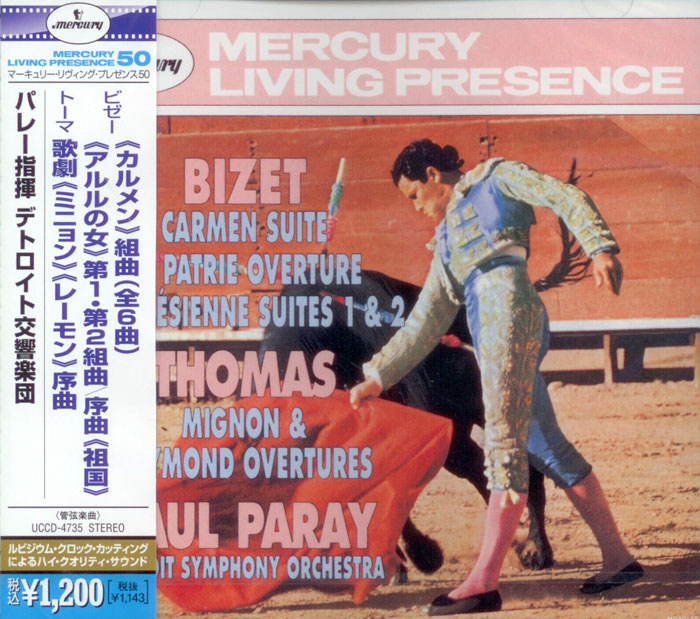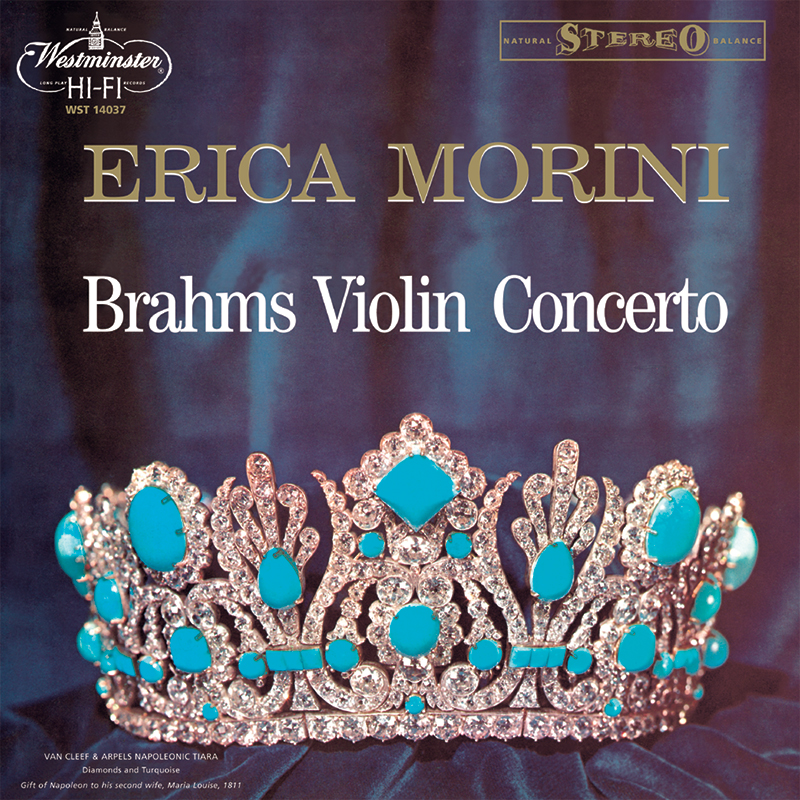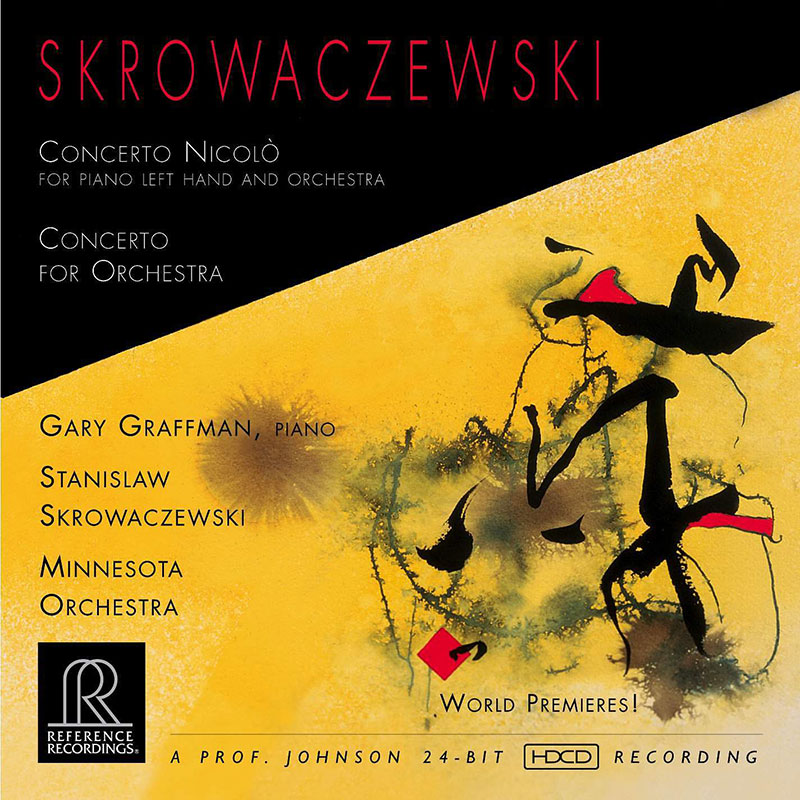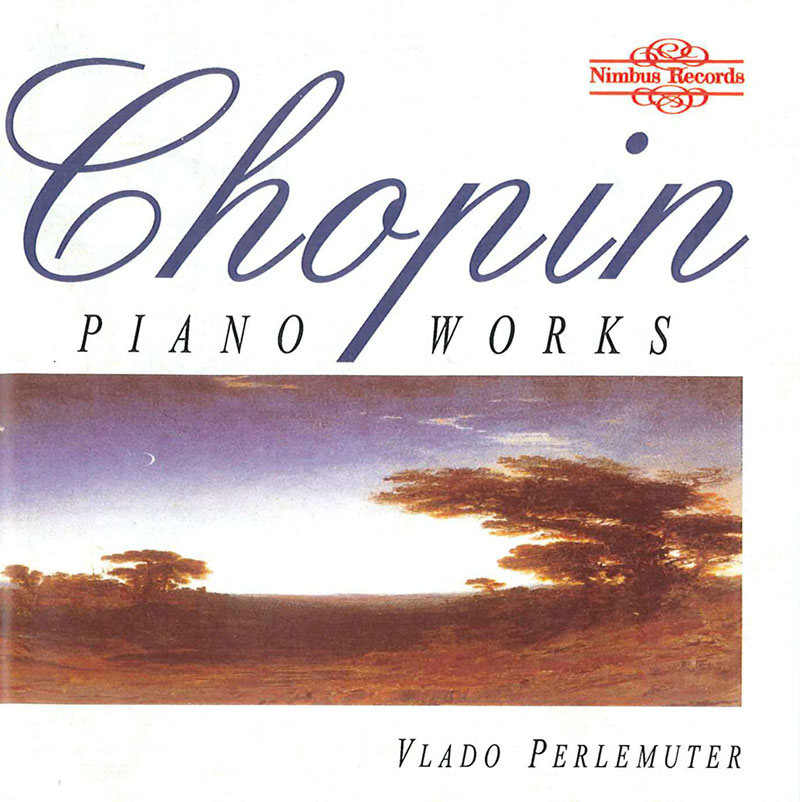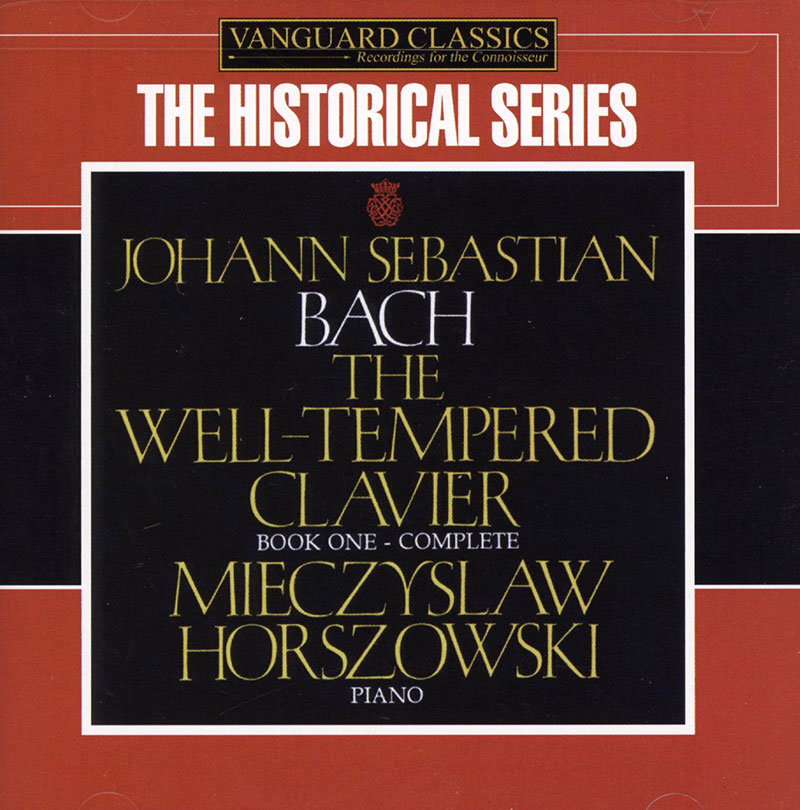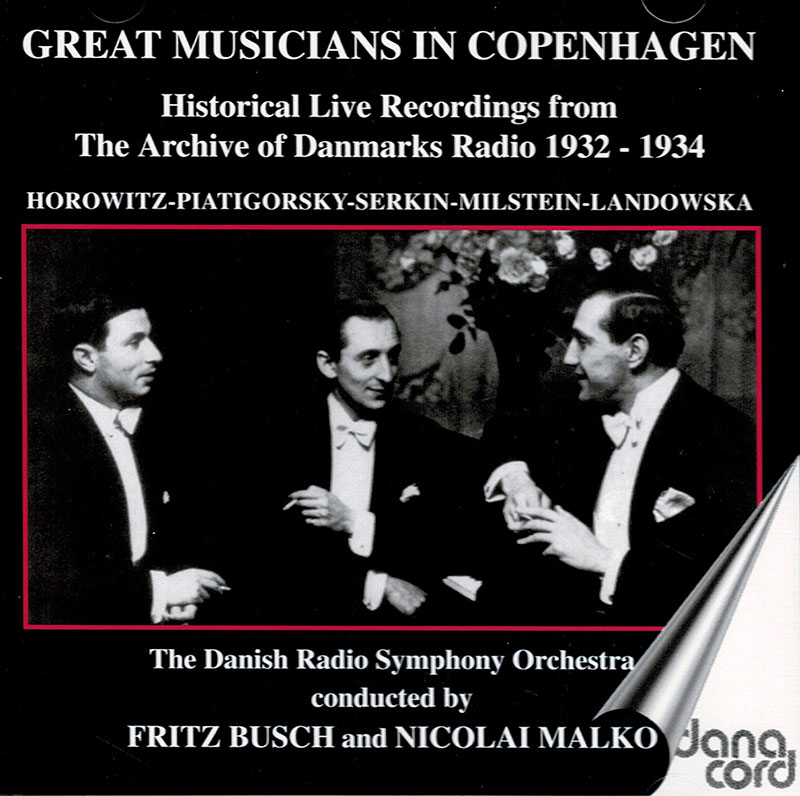Logowanie
Dlaczego wszystkjie inne nie brzmią tak jak te?
Chai Lang, Fan Tao, Broadcasting Chinese Orchestra
Illusive Butterfly
Butterly - motyl - to sekret i tajemnica muzyki chińskiej.
Brzmią jak sen na jawie
KHACHATURIAN, SHOSTAKOVICH, Antal Dorati, Stanislaw Skrowaczewski, The London Symphony Orchestra
Gayne / Symphony No. 5 in D minor, Op. 47
Stanisław Skrowaczewski,
Winylowy niezbędnik
ClearAudio
Cartridge Alignment Gauge - uniwersalny przyrząd do ustawiania geometrii wkładki i ramienia
Jedyny na rynku, tak wszechstronny i właściwy do każdego typu gramofonu!
ClearAudio
Harmo-nicer - nie tylko mata gramofonowa
Najlepsze rozwiązania leżą tuż obok
IDEALNA MATA ANTYPOŚLIZGOWA I ANTYWIBRACYJNA.
Osobowości
SKROWACZEWSKI, Stanislaw Skrowaczewski, Minnesota Orchestra
Concerto Nicolo for piano left hand and orchestra
WORLD PREMIERE!
GOUNOD, Igor Markevitch, Czech Philharmonic Orchestra
St. Cecilia Mass
Charles Gounod - St. Cecilia Mass
01. Kyrie (6:15)
02. Gloria: Larghetto (3:38)
03. Gloria: Andante (3:49)
04. Gloria: Allegro pomposo (1:28)
05. Credo: Moderato molto maestoso (4:38)
06. Credo: Adagio (3:41)
07. Credo: Moderato molto maestoso (4:56)
08. Offertorium (3:18)
09. Sanctus, Sanctus (6:33)
10. Benedictus (3:34)
11. Agnus Dei (4:49)
12. Domine salvam: largo (1:08)
13. Domine salvam: poco animato (1:07)
14. Domine salvam: tres large (1:37)
- Igor Markevitch - conductor
- Czech Philharmonic Orchestra - orchestra
- GOUNOD
The music of Charles Gounod (1818-1893) music is heard less frequently nowadays. He composed splendid melodies but posterity has not always been responsive to his larger-scale music. His two rather good symphonies are rarely played and even his greatest masterpiece, the opera “Faust”, seems to be known mainly through its ballet music and some ‘favourite’ arias.
This re-issue of a very well engineered recording of his “Saint Cecilia Mass” (1855) is a welcome and attractive addition to the catalogue, but the booklet-note seems to take a strangely tangential view of it, setting out Igor Markevitch’s career clearly but allotting very few words to the music itself. A quotation is included from the Penguin Guide of 1992 but I suggest that it is of limited publicity value since it refers to “… the incongruity of Gounod’s jolly and vulgar tunes…”.
 This release is worthy of far more flattering promotion. This fine composition is skilfully and unusually structured with only a final four minutes of eccentricity that might upset liturgical purists. Additionally, all three soloists are magnificent. In particular Irmgard Seefried sustains a wonderfully gentle line, always avoiding operatic style. After the gentle ‘Kyrie’, the ‘Gloria’ continues in a similarly calm manner and Seefried’s voice is here at is most beautiful.
This release is worthy of far more flattering promotion. This fine composition is skilfully and unusually structured with only a final four minutes of eccentricity that might upset liturgical purists. Additionally, all three soloists are magnificent. In particular Irmgard Seefried sustains a wonderfully gentle line, always avoiding operatic style. After the gentle ‘Kyrie’, the ‘Gloria’ continues in a similarly calm manner and Seefried’s voice is here at is most beautiful.
Not until around eight minutes does the chorus make its powerful entrance. Markevitch’s typically fiery style enhances its forceful impact and the central section of the ‘Gloria’ combines the strength of Hermann Uhde with the flexible lyricism of Gerhard Stolze to which, after a while, the soprano line is subtly added. This thoughtful and restrained style of composition makes the later fully-scored choral and orchestral episodes all the more effective. The excellently balanced recording set in an acoustic incorporating exactly the right degree of resonance makes the composer’s unusually varied vocal and choral sequences ideally clear – and how refreshing to have the soloists singing with great clarity of diction without being overpoweringly forward.
I find Gounod’s music to be very original and not at all “jolly and vulgar”. The grand ‘Et resurrexit’ as being something of a highlight and see no fault in Gounod choosing to use gorgeous melodies to enhance this vital part of the Mass text. My one doubt is raised by those four minutes of music that the composer added after the ‘Agnus dei’. Here he composes a section called ‘Domine salvam’ comprising three short prayers – ‘of the Church’, ‘of the Army’ and ‘of the Nation’ – but there is nothing authentically liturgical here because Gounod has written the texts himself and all three prayers say “Lord protect the Republic”.
It is not for me to advise buyers how to listen but those who, like me, have admiration for the Latin Mass as a basis for musical setting might perhaps choose not to play the final three tracks. Nevertheless, this devalues a very fine work, here splendidly performed and recorded – an issue that I can confidently recommend.






